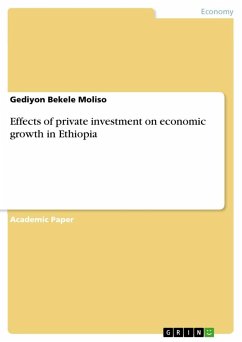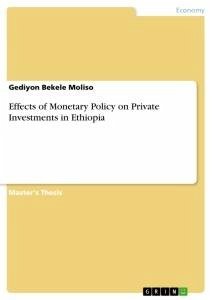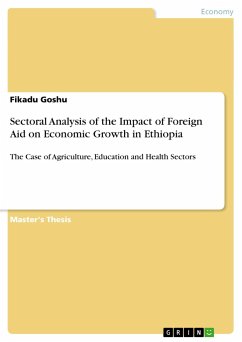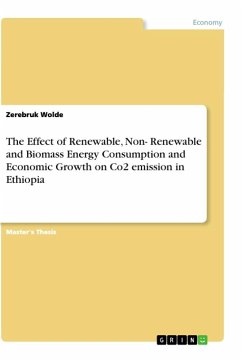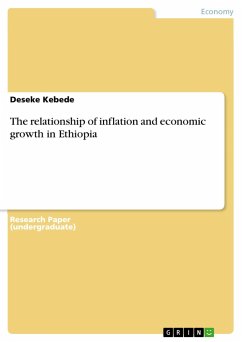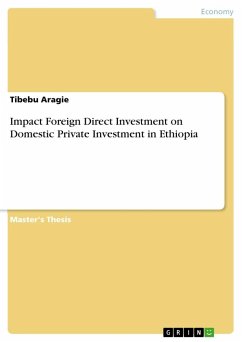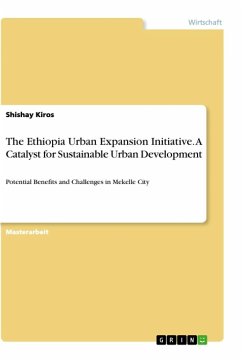Academic Paper from the year 2022 in the subject Economics - Case Scenarios, grade: A, , language: Amharic, abstract: The main objective of this study is to investigate the effect of private investment on economic growth in Ethiopia for utilizes annual time-series data from 1986 to 2020. To achieve the goal of this study, Autoregressive Distributed Lag (ARDL) Approach to Bounds test and Error Correction Model. Data was collected from National Bank of Ethiopia (NBE). Economic growth and development are largely dependent on a country's capacity to invest and use its resources efficiently and productively. In truth, growth is impossible without significant and high-quality investment. As a result, according to Bayraktar (2003), investment is both the result and the cause of economic growth. The private sector's contribution to the quantity of gross domestic investment, as well as its capacity to allocate and deploy resources efficiently, is critical. Private sector investment has been a driving force behind the creation of jobs and income, as well as the provision of infrastructure and social services. The role of the private sector in improving economic growth in underdeveloped countries has also been recognized by international organizations. The European Commission (EU) (2014), for example, stated that the private sector in developing countries has the ability to generate inclusive and sustainable growth. The fast growth of FDI over the last decade has intrigued prominent economists and policymakers to examine FDI`s impact on economic growth. Empirical findings for the effect of FDI on economic growth show a positive result for most recipient countries. The main benefits include spillover knowledge such as packages of capital, technical skills, managerial and organizational knowhow. FDI is a crucial component to developing countries and provides access to resources and technology that otherwise would not be available. Investment is an important component of aggregate demand and a leading source of economic growth. Change in investment not only affect aggregate demand but also enhance the productive capacity of an economy. The function of investment in extending the economy's productive capacity and promoting long-term economic growth is critical. Faster economic growth is triggered by higher investment rates.
Hinweis: Dieser Artikel kann nur an eine deutsche Lieferadresse ausgeliefert werden.
Hinweis: Dieser Artikel kann nur an eine deutsche Lieferadresse ausgeliefert werden.

